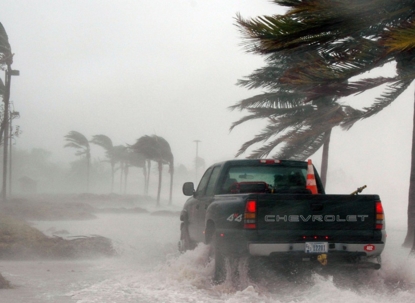Florida's weather is a double-edged sword for roofs. On one hand, the Sunshine State offers plenty of, well, sunshine. But on the other hand, it also brings severe storms, high humidity, and even salt exposure in coastal areas. Each of these factors can affect roof durability in different ways.
The combination of these elements creates a complex environment where roofs must perform under diverse conditions, demanding careful selection of materials and meticulous maintenance to ensure longevity.
The Scorching Sun
The sun's ultraviolet (UV) rays can be harsh on roofing materials. Prolonged exposure to intense sunlight can cause materials to degrade over time. Asphalt shingles, for example, may dry out, become brittle, and eventually crack. This can lead to leaks and other issues that necessitate roof repair or replacement. Roofing contractors often recommend reflective materials or coatings that help mitigate UV damage to extend the life of your roof.
Storms and Hurricanes
Florida is notorious for its hurricane season, which typically runs from June to November. High winds and heavy rain can wreak havoc on roofs, especially if they are not properly maintained. Missing shingles, damaged flashing, and weakened structural elements are common issues that roofing companies encounter after a storm. Ensuring your roof is in top condition before hurricane season can prevent costly damage.
Beyond regular maintenance, homeowners can also invest in additional protective measures such as installing hurricane straps or clips to secure the roof structure to the walls of the house. Reinforcing areas like the eaves and soffits can also enhance the roof's ability to withstand high winds. It’s equally important to have an emergency plan in place, including knowing the contact details of a reliable roofing contractor who can quickly assess and repair any storm damage, minimizing downtime and potential water intrusion.
Humidity and Moisture
High humidity levels in Florida can lead to moisture buildup, which is a breeding ground for mold and mildew. This is not only a health hazard but can also compromise the structural integrity of your roof. Proper ventilation and regular inspections by roofing contractors can help prevent moisture-related issues and maintain roof durability.
To further combat the effects of humidity, homeowners might consider using moisture-resistant underlayment during roof installation. This barrier offers an additional layer of protection against water ingress. Implementing dehumidifiers in attics can also help manage moisture levels, thereby protecting the roof structure and interior spaces. Regularly checking attic spaces for condensation, especially after heavy rains, can alert homeowners to potential issues before they escalate.
Salt Exposure
For homes near the coast, salt exposure is an additional concern. Salt can accelerate the corrosion of metal roofing components, such as fasteners and flashing. Choosing corrosion-resistant materials and coatings can help combat this issue, ensuring your roof remains durable despite the salty air.
Choosing the Right Roofing Materials
Selecting the right materials is crucial for maintaining roof durability in Florida's challenging climate. Here are some popular options:
Asphalt Shingles
Asphalt shingles are a common choice due to their affordability and ease of installation. However, they may not be the best option for long-term durability in Florida's harsh weather. If you choose asphalt, consider high-quality shingles with a strong warranty and UV-resistant properties.
While asphalt shingles are economical, they often require more frequent inspections and maintenance compared to other materials. Homeowners should be proactive in checking for any signs of wear and tear, especially after storms. Upgrading to impact-resistant asphalt shingles can provide additional protection against hail and wind damage, making them a slightly more resilient option for Florida’s climate.
Metal Roofing
Metal roofing is known for its durability and resistance to extreme weather conditions, making it a great choice for Florida homes. It's lightweight, fire-resistant, and can withstand high winds. Additionally, metal roofs have reflective properties that help reduce heat absorption, which is a bonus in hot climates.
The longevity of metal roofing, often lasting 40 to 70 years, makes it a worthwhile investment despite the higher upfront cost. The variety of styles and colors available also allows homeowners to select a metal roof that complements their home's architectural style. Regular inspection of seams and fasteners, especially after severe weather events, ensures that the metal roof maintains its integrity over time.
Tile Roofing
Tile roofing, made from clay or concrete, is another excellent option for Florida homes. Tiles are durable, fire-resistant, and can withstand high winds. They also offer a distinctive aesthetic appeal. However, tile roofing can be heavy, so it's essential to ensure your home's structure can support the weight.
Despite their weight, tile roofs are highly regarded for their longevity, often exceeding 50 years with proper care. They are also excellent for energy efficiency, providing natural insulation that helps keep homes cooler in hot weather. Homeowners should ensure that the tiles are regularly checked for cracks or dislodged pieces, particularly after heavy storms, to prevent water infiltration and maintain their structural integrity.
Slate Roofing
Slate is a premium roofing material known for its longevity and natural beauty. It's highly durable and can withstand harsh weather conditions. However, slate is one of the most expensive roofing options and requires professional installation and maintenance.
The natural stone composition of slate roofing offers unparalleled durability, often lasting over a century if properly maintained. Its fire resistance and low water absorption make it ideal for Florida's wet and stormy conditions. While the initial investment is significant, the reduced need for repairs and its timeless aesthetic appeal can make it a desirable choice for those looking for a long-term roofing solution.
Agricultural Shingles
Agricultural shingles are a durable and cost-effective roofing option designed for barns, sheds, and other agricultural structures. These shingles offer solid weather resistance, making them suitable for protecting farm buildings from heavy rain, wind, and sun exposure. While not as thick as premium residential shingles, agricultural shingles provide reliable coverage and are easy to install, making them a practical choice for large-scale roofing projects.
Roof Maintenance Tips
Regular maintenance is key to ensuring the durability of your roof, especially in Florida's challenging climate. Here are some tips:
- Regular Inspections: Schedule regular inspections with roofing contractors to catch potential issues early. This can prevent minor problems from becoming major repairs. Inspections should be more frequent during and after the hurricane season to address any storm-related damages promptly.
- Clean Gutters and Downspouts: Ensure your gutters and downspouts are free of debris to prevent water buildup and leaks. Clogged gutters can lead to water pooling on the roof, which may cause leaks or structural damage over time.
- Trim Overhanging Branches: Trees near your home can pose a risk during storms. Trim branches that hang over your roof to prevent damage from falling limbs. Regularly maintaining your landscape can also prevent leaves and debris from accumulating on the roof.
- Check for Mold and Mildew: Regularly inspect your roof for signs of mold and mildew, especially in humid areas. Address any issues promptly to prevent further damage. Consider applying mold-resistant treatments to vulnerable areas as a preventive measure.
- Ensure Proper Ventilation: Adequate ventilation helps reduce moisture buildup and extends the life of your roofing materials. Installing ridge vents or exhaust fans can enhance airflow, keeping attic spaces dry and reducing the risk of heat damage.
When to Consider Roof Replacement
Even with the best materials and maintenance, every roof will eventually need to be replaced. Here are some signs that it might be time for a roof replacement:
- Frequent Repairs: If you're constantly calling roofing companies for repairs, it might be more cost-effective to replace your roof. The cumulative cost of repairs can quickly surpass the investment in a new roof that offers better protection and efficiency.
- Age of the Roof: Most roofing materials have a specific lifespan. If your roof is nearing the end of its expected life, consider a replacement to avoid unexpected issues. Proactively planning for a replacement can ensure you have ample time to select the best materials and contractors without the pressure of an emergency.
- Visible Damage: If you notice significant damage, such as missing shingles, sagging, or large leaks, it's time to consult with roofing contractors about replacement options. Visible issues can be symptomatic of underlying structural problems that, if left unaddressed, might lead to more extensive damage.
Conclusion
Florida's weather can be tough on roofs, but with the right materials and regular maintenance, homeowners can protect their investment. Whether you're installing a new roof or maintaining an existing one, working with experienced roofing contractors is key to ensuring durability. A proactive approach will give you peace of mind, knowing your roof is ready for whatever Florida throws its way.
For expert roofing services in Ft. Myers, contact Mighty Dog Roofing. Our team is ready to help keep your roof in top condition, ensuring it stands strong against Florida’s elements.


